
Terrence Mitchell "Terry" Riley is an American composer and performing musician best known as a pioneer of the minimalist school of composition. Influenced by jazz and Indian classical music, his work became notable for its innovative use of repetition, tape music techniques, and delay systems. His best known works are the 1964 composition In C and the 1969 album A Rainbow in Curved Air, both considered landmarks of minimalism and important influences on experimental music, rock, and contemporary electronic music. Subsequent works such as Shri Camel (1980) explored just intonation.

Darren Aronofsky is an American filmmaker. His films are noted for their surreal, melodramatic, and often disturbing elements, frequently in the form of psychological fiction.

Clinton Darryl Mansell is an English musician, singer, and composer. He served as the lead vocalist of alt-rock band Pop Will Eat Itself. After the band's dissolution, Mansell moved to the United States and embarked on a career as a film score composer.

The Kronos Quartet is an American string quartet based in San Francisco. It has been in existence with a rotating membership of musicians for 50 years. The quartet covers a very broad range of musical genres, including contemporary classical music. More than 1,000 works have been written for it.

Nonesuch Records is an American record company and label owned by Warner Music Group, distributed by Warner Records, and based in New York City. Founded by Jac Holzman in 1964 as a budget classical label, Nonesuch has developed into a label that records critically acclaimed music from a wide range of genres. Robert Hurwitz was president of the company from 1984 to 2017.
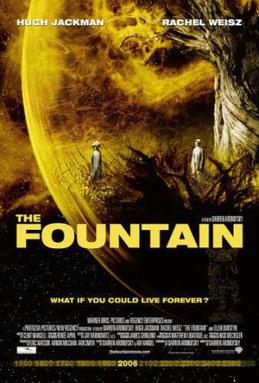
The Fountain is a 2006 American epic romantic drama film written and directed by Darren Aronofsky and starring Hugh Jackman and Rachel Weisz. Blending elements of fantasy, history, spirituality and science fiction, the film consists of three storylines involving immortality and the resulting loves lost, and one man's pursuit of avoiding this fate in this life or beyond it. Jackman and Weisz play sets of characters bonded by love across time and space: a conquistador and his ill-fated queen, a modern-day scientist and his cancer-stricken wife, and a traveler immersed in a universal journey alongside aspects of his lost love. The storylines—interwoven with use of match cuts and recurring visual motifs—reflect the themes and interplay of love and mortality.

Requiem for a Dream is the soundtrack album from the 2000 film Requiem for a Dream. It was composed by Clint Mansell and performed by the Kronos Quartet. The music for the film is noted for its minimalist qualities in which it uses constant harmonies, a steady pulse, and often variation of musical phrases to drive a point. The album is best known for the track "Lux Aeterna."
Lux Æterna is an orchestral composition by Clint Mansell. Performed by the Kronos Quartet, it forms a leitmotif in the 2000 film Requiem for a Dream, and is the penultimate piece in the movie's soundtrack.

Heat is the soundtrack album to the 1995 film Heat. The score is compiled mostly with Elliot Goldenthal's orchestrations although there are a variety of other artists featured including U2/Brian Eno project Passengers, Lisa Gerrard, Moby and Terje Rypdal.

The Fountain: Music from the Motion Picture is the soundtrack album to the 2006 film The Fountain directed by Darren Aronofsky. Released on November 27, 2006, through Nonesuch Records, the album is a collaboration between contemporary classical composer and frequent Aronofsky collaborator Clint Mansell, classical string quartet the Kronos Quartet, and post-rock band Mogwai. The score received mixed reviews from critics and was nominated for several awards.

The discography of the Kronos Quartet includes 43 studio albums, two compilations, five soundtracks, and 29 contributions to other artists' records. The Kronos Quartet plays classical, pop, rock, jazz, folk, world and contemporary classical music and was founded in 1973 by violinist David Harrington. Since 1978, they are based in San Francisco, California. Since 1985, the quartet's music has been released on Nonesuch Records.
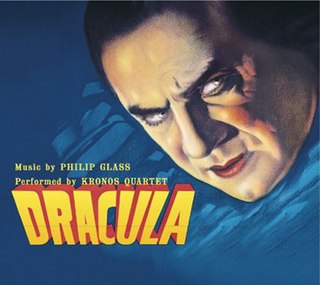
Dracula is a soundtrack performed by the Kronos Quartet, with music composed by Philip Glass, for the 1931 film Dracula.
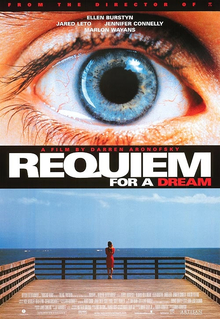
Requiem for a Dream is a 2000 American psychological drama film directed by Darren Aronofsky and starring Ellen Burstyn, Jared Leto, Jennifer Connelly, Christopher McDonald, and Marlon Wayans. It is based on the 1978 novel of the same name by Hubert Selby Jr., with whom Aronofsky wrote the screenplay. The film depicts four characters affected by drug addiction and how it alters their physical and emotional states. Their addictions cause them to become imprisoned in a world of delusion and desperation. As the film progresses, each character deteriorates, and their delusions are shattered by the harsh reality of their situations, resulting in catastrophe.

Black Swan is a 2010 American psychological horror film directed by Darren Aronofsky from a screenplay by Mark Heyman, John McLaughlin, and Andres Heinz, based on a story by Heinz. The film stars Natalie Portman in the lead role, with Vincent Cassel, Mila Kunis, Barbara Hershey, and Winona Ryder in supporting roles. The plot revolves around a production of Tchaikovsky's Swan Lake by the company of New York City Ballet. The production requires a ballerina to play the innocent and fragile White Swan, for which the committed dancer Nina Sayers (Portman) is a perfect fit, as well as the dark and sensual Black Swan, which are qualities better embodied by the new rival Lily (Kunis). Nina is overwhelmed by a feeling of immense pressure when she finds herself competing for the role, causing her to lose her tenuous grip on reality and descend into madness.

Carly Paradis is a Canadian-born British composer, songwriter and pianist. She composes soundtracks for movies, TV series and solo albums.
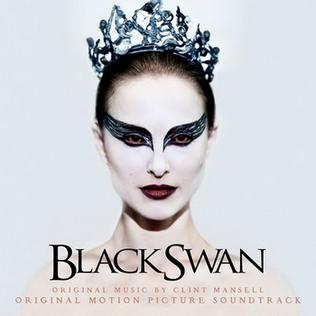
Black Swan: Original Motion Picture Soundtrack is the soundtrack album to the 2010 film Black Swan.

Noah is a 2014 American epic biblical drama film directed by Darren Aronofsky, who co-wrote the screenplay with Ari Handel. Inspired by the biblical story of Noah's Ark from the Book of Genesis and the Book of Enoch, it stars Russell Crowe as Noah, along with Jennifer Connelly, Ray Winstone, Emma Watson, Logan Lerman, and Anthony Hopkins.

Pi is a 1998 American conceptual psychological thriller film written and directed by Darren Aronofsky. Pi was filmed on high-contrast black-and-white reversal film. The title refers to the mathematical constant pi. The story focuses on a mathematician with an obsession to find underlying complete order in the real world and contrasting two seemingly irreconcilable entities: the imperfect irrationality of humanity and the rigor and regularity of mathematics, specifically number theory. The film explores themes of religion, mysticism, and the relationship of the universe to mathematics.

Mother! is a 2017 American fantasy drama film written and directed by Darren Aronofsky, and starring Jennifer Lawrence, Javier Bardem, Ed Harris, Michelle Pfeiffer, Domhnall Gleeson, Brian Gleeson, and Kristen Wiig. It follows a young woman whose tranquil life with her husband at their country home is disrupted by the arrival of a mysterious couple.
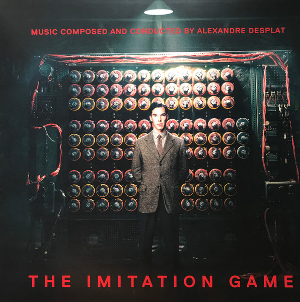
The Imitation Game (Original Motion Picture Soundtrack) is the score album to the 2014 film of the same name. The film is scored by Alexandre Desplat who replaced the original composer Clint Mansell before the film's production commenced. The London Symphony Orchestra performed the original score that featured various instruments such as keyboards, clarinets, strings, arpeggio and bombe. The album was released on November 7, 2014 by Sony Music Entertainment. The album received critical acclaim and was nominated for several awards, including the Academy Award for Best Original Score but lost to The Grand Budapest Hotel, also composed by Desplat.



















